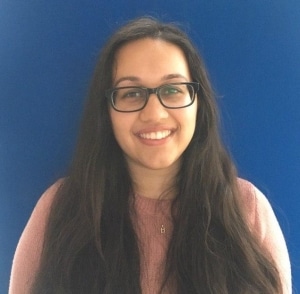I’m a third year PhD student, heading into my fourth. My project looks at the electrical currents in the Earth’s magnetosphere: how they change with time, and under different conditions. These currents, called field-aligned currents (or FACs), create the incredible Northern and Southern lights!

When I’m not working from home (like I am at the moment due to COVID-19), I would spend most of my time working in my office. As PhD hours are flexible, I would often mix up the times I was working, sometimes working from home in the mornings, then heading into the office for lunchtime etc. Usually I found that working 10-6 was good for me, so that is what I would often do. In my group at the university, we have tea breaks twice daily, which helps to break up our work and have a bit of down time with the other group members. There are also regular social pub/food trips that I tend to join, either with the PhD students, or the group that I work with.


Attending conferences, both national and international has been a lot of fun! You get to make great friends from these, and you get to travel, which is always exciting.
For me presenting work, and public speaking has always been quite daunting. During the PhD however, I’ve had ample opportunities to present my work, gained a lot more confidence and I’ve always thought I did it well! I guess practice does make perfect.

I actually studied at the University of Leicester for my undergraduate degree and master’s, as well as staying on to study for my PhD here. I really enjoy being a part of the School of Physics and Astronomy, the department is really nice and friendly and I love the campus. I wanted to stay at Leicester because I knew some of the researchers in the group I would be joining, and they were really nice and supportive. I also knew the type of projects that the group were undertaking and they really interested me, and I knew that I would be able to get plenty of help whenever I needed it. Leicester is a really great place for studying a wide range of Physics topics, including the topic I was interested in – space plasma physics. The university itself is situated in a great part of Leicester, it’s a short walk away from the city centre, Victoria Park is right next to the university and there are lots of local pubs, bars and cafes nearby.

In my free time I enjoy being creative – baking, drawing or painting. I have also gotten back into reading, which I am really liking at the moment, but I also enjoy lounging in front of the TV too, be it gaming, watching a film or a TV series.
Follow her on Twitter, Instagram, LinkedIn and Google Scholar using the links below and also check out her open-access paper published in the Journal of Geophysical Research: Space Physics:
Twitter | Instagram | Google Scholar | LinkedIn | Journal Paper

